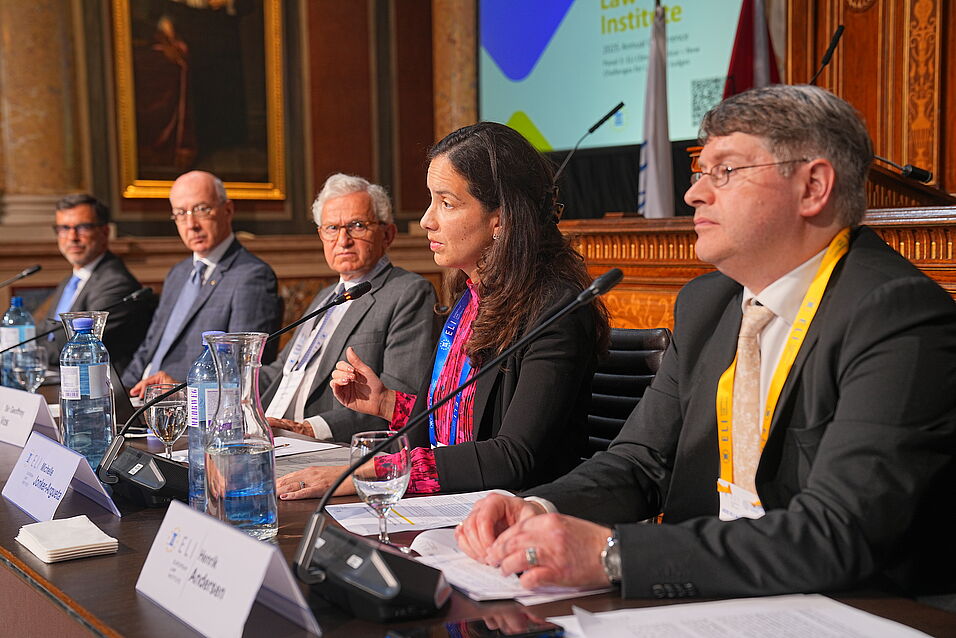The Panel on ELI Climate Justice: New Challenges for Law and Judges took place as part of the 2025 ELI Annual Conference in Vienna.
The session examined how legal systems respond to the growing number of climate-related cases, evolving rules on standing, and the influence of recent developments in international and national courts. Bringing together leading experts in environmental law, judicial practice, and policy, the discussion reflected on how courts and legislators are addressing the complex intersection of climate change and justice.
François Chaix, President of the Swiss Supreme Court, reflected on the limits faced by domestic courts compared to supranational ones. He explained that while Swiss judges must apply federal laws even if they appear inconsistent with constitutional or human rights standards, the European Court of Human Rights has greater freedom to assess conformity with fundamental rights. He also highlighted the delicate balance between judicial and parliamentary roles within Switzerland’s legal framework.
Rafael Benitez, Director of Social Rights, Health and Environment at the Council of Europe, contributed a policy and institutional perspective, emphasising the Council of Europe’s commitment to advancing environmental protection and social rights. Building on this broader framework, Henrik Andersen, ELI Project Co-Reporter and Professor at Copenhagen Business School, highlighted the role of the judiciary in realising these objectives. He encouraged judges to view advisory opinions and comparative jurisprudence as a unified body of law, noting that climate change presents a global legal challenge that requires courts to engage with international developments on causation, harm, and standing. He concluded by urging judges to reflect on how future generations will assess their decisions.
Michelle Jonker-Argueta, Senior Legal Counsel at Greenpeace International, emphasised that climate change is both an environmental and judicial challenge spanning all areas of law. She observed that courts are increasingly factoring climate considerations into their decisions and expressed confidence that judges are rising to this global responsibility while respecting their institutional limits.
The panel concluded with an engaging discussion between speakers and participants on how legal systems are adapting to the surge in climate litigation and the broadening scope of judicial engagement with climate justice.
The session was moderated by Sir Geoffrey Vos, ELI’s Vice-President, Master of the Rolls and Head of Civil

